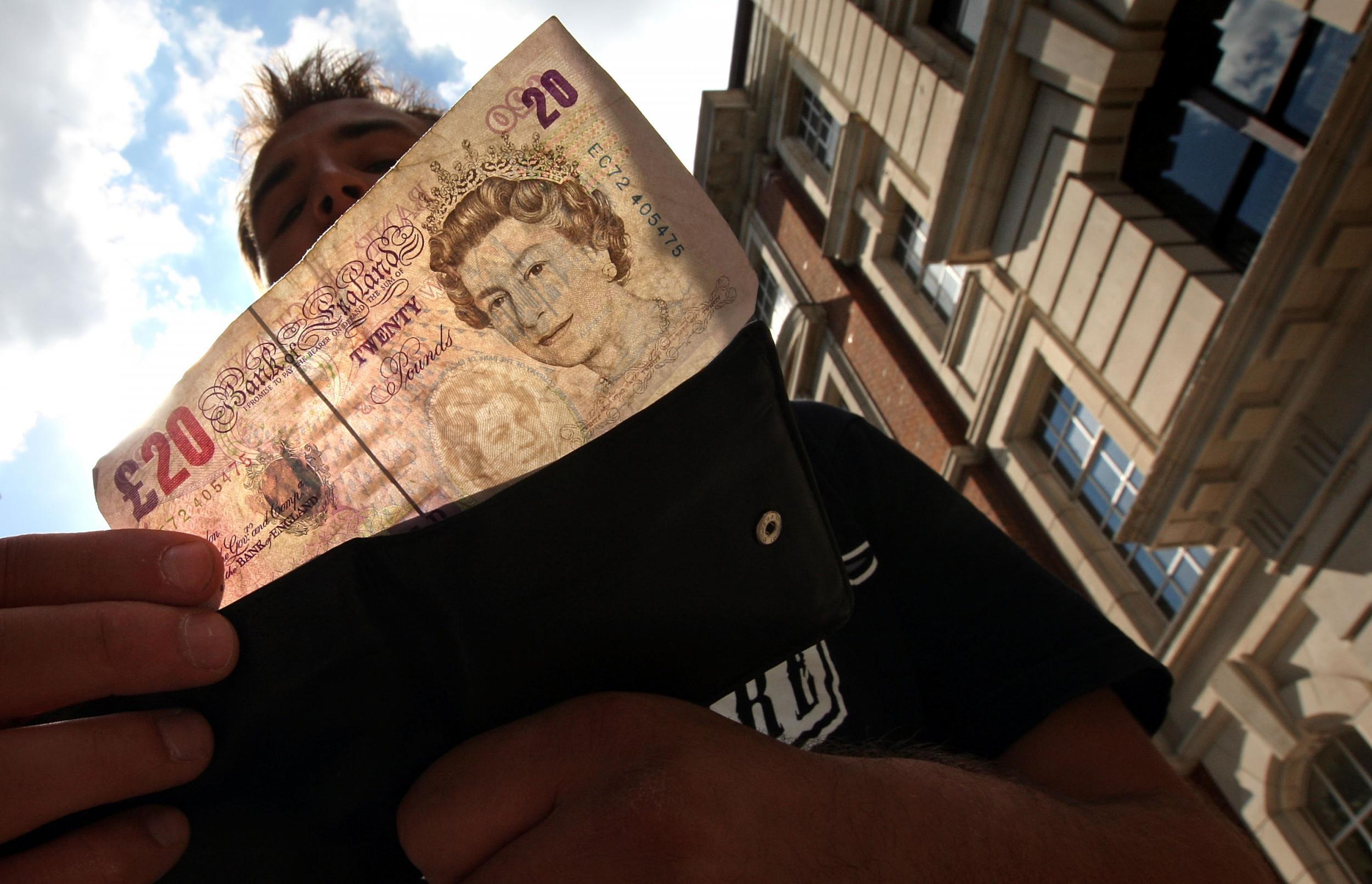Brexit could knock almost £800 off annual wage of UK's poorest workers, report finds
The Resolution Foundation concludes low-paid workers could be hit due to a weaker wage-growth outlook after the Brexit vote

Your support helps us to tell the story
From reproductive rights to climate change to Big Tech, The Independent is on the ground when the story is developing. Whether it's investigating the financials of Elon Musk's pro-Trump PAC or producing our latest documentary, 'The A Word', which shines a light on the American women fighting for reproductive rights, we know how important it is to parse out the facts from the messaging.
At such a critical moment in US history, we need reporters on the ground. Your donation allows us to keep sending journalists to speak to both sides of the story.
The Independent is trusted by Americans across the entire political spectrum. And unlike many other quality news outlets, we choose not to lock Americans out of our reporting and analysis with paywalls. We believe quality journalism should be available to everyone, paid for by those who can afford it.
Your support makes all the difference.Brexit could knock almost £800 off the annual wage of the country’s lowest-paid workers by the end of the decade, a major new report has found.
The research concluded that an uncertain economic outlook in the wake of the UK’s European Union referendum could drive down average pay growth, with a direct effect on how the minimum wage is set.
It comes after Treasury papers showed Britain could lose up to £66bn a year if it pursues the hard Brexit option – leaving the single market and EU customs union.
Theresa May’s Conservative conference speech signalling the UK will prioritise immigration over single market access in Brexit talks also sent confidence in pound sterling tumbling last week.
While the longer-term economic impacts of Brexit are yet to unfold, today’s report from the Resolution Foundation think-tank suggests the lowest paid could be hardest hit.
In April this year the Government’s new £7.20-per-hour National Living Wage (NLW), announced by ex-Chancellor George Osborne, replaced the minimum wage for people over 25.
From now on the rate is set based on median earnings, with the Office for Budget Responsibility (OBR) predicting in March that the NLW would hit £7.60 per hour in 2017.
Chancellor Philip Hammond should confirm next year’s rate in the Autumn Statement next month, but today’s Resolution Foundation report predicts it will be 10p lower that the OBR thought due to weaker wage growth – meaning £200 a year less for the lowest paid in 2017.
By 2020 the think-tank says faltering pay-growth means the NLW may only reach £8.60 instead of the Government’s original £9 pledge, wiping a full £780 off annual wages.
Resolution Foundation Policy analyst Conor D’Arcy said: “While there is much uncertainty over Britain’s long-term economic outlook, most economists agree that wage growth in the next few years is likely to be weaker than expected prior to the referendum. That means we’re unlikely to see the £9 National Living Wage that George Osborne talked about in this parliament.”
He said it is “sensible” that NLW, expected to lift more than 800,000 workers out of low pay by 2020, rises in line with wages of typical workers.
But the report’s findings add to concerns over the future impact of Brexit, and in particular a hard Brexit.
Liberal Democrat Leader Tim Farron said Brexit was creating “Breadline Britain” by hitting the poorest hardest.
He added: “Brexit was supposed to be about taking back control when actually it seems it is just taking out of the pockets of the people who can least afford it.”
A Government paper leaked to The Times this week suggested the UK’s gross domestic product could fall by as much as 9.5 per cent if it leaves the EU and reverts to World Trade Organisation rules – something suggested by some pro-Brexit MPs.
The document said: “The net impact on public sector receipts – assuming no contributions to the EU and current receipts from the EU are replicated in full –would be a loss of between £38 billion and £66 billion per year after 15 years, driven by the smaller size of the economy.”
The draft Cabinet committee paper is based on a controversial study published by George Osborne in April during the referendum campaign. But despite the vilification it received then, the Treasury says it still stands by the figures now.
Pound sterling fell to its lowest level against the dollar since the beginning of July following Ms May’s conference speech, in which she gave clear signals that the UK was heading for a hard Brexit.
In the House of Commons earlier on Monday Brexit Secretary David Davis also indicated that the UK could withdraw from full single market membership and the EU customs union.
The Government has said it will pursue “the best outcome for Britain” consisting of a “bespoke arrangement which gives British companies the maximum freedom to trade with and operate in the single market, and enables us to decide for ourselves how we control immigration.”
Join our commenting forum
Join thought-provoking conversations, follow other Independent readers and see their replies
Comments